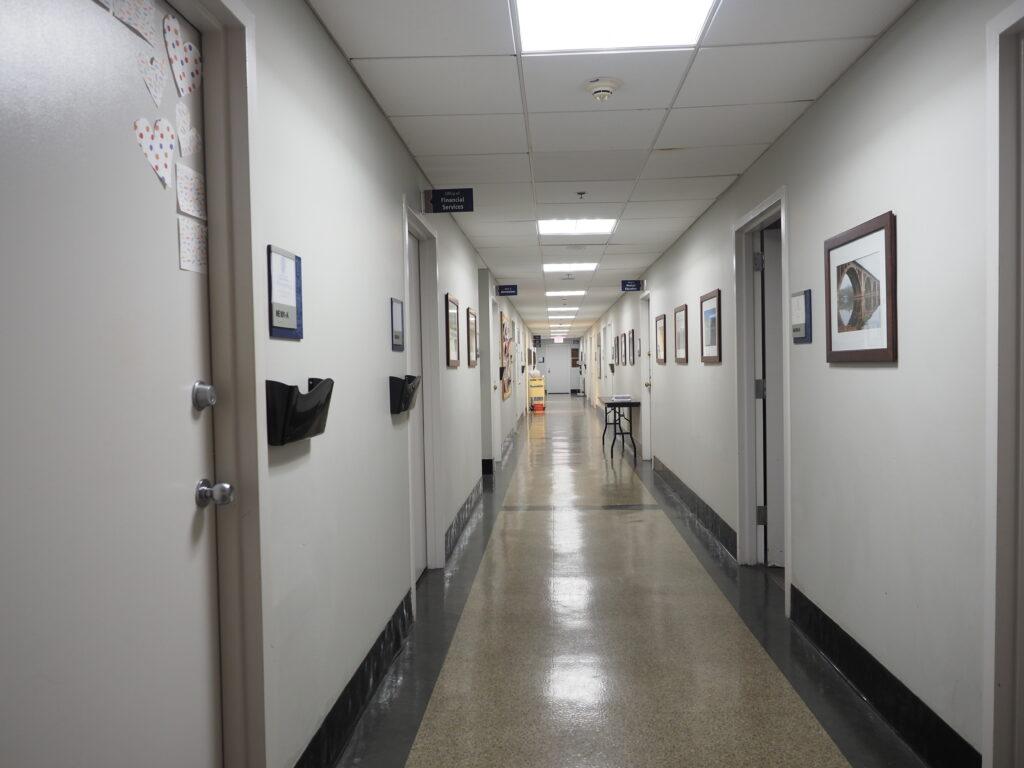The National Institutes of Health (NIH) awarded Georgetown University a grant that will launch an interdisciplinary training program for biomedical science graduate students Feb. 1.
The program, titled the Georgetown University Initiative for Maximizing Student Development (IMSD), is a five-year program that combines coursework, thesis research labs and cross-disciplinary mentorship in an effort to expand enrollment of individuals from racial and ethnic groups that are nationally underrepresented in the health sciences.
The training grant will enroll 20 students in total, with recruitment beginning this month and the incoming cohort beginning in July. The IMSD principal investigators and co-directors are Kathleen Maguire-Zeiss, Caleb McKinney and Ronda Rolfes.

The program will provide the space for biomedical science students to connect with individuals inside and outside of their specific program, according to Rolfes, professor and director of graduate studies in the biology department at Georgetown.
“Students selected for this training grant will become part of a supported cohort that extends beyond the department or program that they join,” Rolfes wrote in an email to The Hoya. “In other words, they will form connections to other students and faculty outside of their own PhD program. The interdisciplinary community is a unique aspect of this training grant relative to the other existing training grants.”
Students are eligible to apply for the program if they are enrolled in one of seven participating Georgetown doctoral programs: biochemistry and molecular biology, biology, chemistry, pharmacology and physiology, neuroscience, physics, and tumor biology.
Maguire-Zeiss, McKinney and Rolfes submitted their training program proposal to the NIH during winter 2021.
The idea for the IMSD stemmed from the professors who envisioned an opportunity to create a network between their departments, graduate programs and student development initiatives from the main campus and the biomedical graduate education programs, according to McKinney, assistant dean of graduate and postdoctoral training and development at Georgetown University Medical Center (GUMC).
The ability to interact professionally with programs not within a student’s discipline will allow doctoral students to think of biomedical sciences in broader ways, according to McKinney.
“Another hallmark of the program is the professional development component,” McKinney wrote in an email to The Hoya. “We want our trainees to develop the career self-efficacy needed to pursue the scientific career of their choosing down the line after graduation. Therefore we will be providing them with interprofessional experiences such as project management training, and an opportunity to conduct an internship in an area outside of their research project.”
GUMC looks forward to training people who are underrepresented in medicine through this program, according to Edward B. Healton, executive vice president for health sciences at GUMC and executive dean of the School of Medicine.
“We are especially pleased to have the support of this NIH grant in recognition of the work we have planned for building a more inclusive environment across the university, thus allowing us to better train an array of talented individuals who are underrepresented in these critically important fields,” Healton wrote in a GUMC news release.
The first year of the program will consist of coursework in the student’s discipline, with the opportunity for interdepartmental electives. During the second year, students will join cross-disciplinary mentorship teams and thesis research laboratories to allow students to pursue their professional goals related to their individual discipline while also broadening their scientific skills across programs.
By combining departments, the program will also support students in their holistic learning, according to Maguire-Zeiss, chair of the Georgetown neuroscience department.
“It’s a unique program because it brings together faculty from 7 different departments/PhD programs and will provide an array of professional training opportunities for individuals underrepresented in the biomedical sciences,” Maguire-Zeiss wrote in an email to The Hoya. “For me, this program is representative of the way that Georgetown’s research mentors strive to support the whole student — in the classroom, in research, and in personal development.”
The opportunity for different Georgetown campuses to interact among a cohort of students in the biomedical sciences is a distinctive feature of this program, according to McKinney.
“The IMSD funding opportunity really gave us a chance to come together as a campus around this key area, take an inventory of our collective strengths in training, and break down silos so that we could take a unified approach toward recruiting excellent students from diverse backgrounds and providing them with a unique interdisciplinary and interprofessional training experience that incorporates strong mentorship and cohort development components,” McKinney wrote.




















